Influence of the Greek(Hellenic) language in today’s world
English words of Greek origin
According to the Guinness Book of Records, the Hellenic (Greek) language is among the world’s richest languages, with over 5 million words. Many Greek words in English come from Hellenic roots, especially in science and medicine.
Many of these ancient words have roots tied to mythological figures and stories, especially those involving the Twelve Olympian Gods who once ruled the Greek world, words such as herculean, aphrodisiac, etc.
Mathematics, physics, astronomy, democracy, philosophy, athletics, theatre, rhetoric, baptism, and hundreds of other words are Hellenic(Greek), I bet that you all know that!


Greek words and word elements continue to be productive as a basis for coinages: anthropology, photography, telephony, isomer, biomechanics, cinematography, etc…
In a typical everyday 80,000-word English dictionary, about 5% of the words are directly borrowed from Greek (for example, “phenomenon” is a Hellenic word and even obeys Hellenic grammar rules as the plural is “phenomena”), and another 25% are borrowed indirectly.
Many terms in science, philosophy, and the arts have Greek origins. According to one estimate, about 150,000 English words, directly or indirectly, are derived from Greek words…source:www.britishcouncil.org
It’s estimated that a significant portion of English words—around 30%—have Greek origins, directly or indirectly.
This is because there were many Hellenic words borrowed from Latin originally, which then filtered down into English. After all, English borrowed so many words from Latin (for example, “elaiwa” in Greek evolved into the Latin “oliva”, which in turn became “olive” in English).
Hellenic and Latin are the predominant sources of the international scientific vocabulary; however, the percentage of words borrowed from Greek rises much higher than Latin when considering highly scientific vocabulary (for example, “oxytetracycline” is a medical term that has three Hellenic roots).
And finally, have you ever wondered how the world was going to be if the Greek language had never existed? If we consider English without its Greek, Latin, and French roots, its vocabulary would be considerably smaller.
However, we must acknowledge the English language’s ability to assimilate words from other languages. This adaptability, combined with its widespread use globally, has contributed to its status as today’s international language.
Most of the ideas in this article are borrowed from eurotalk.com, so greetings belong to them.
If you’re fascinated by Greek culture and history, why not take your knowledge further while exploring a Greek island itself? Our Corfu page offers practical tips, hidden gems, and insights into the landscapes, monuments, and traditions that make Corfu a must-visit destination.
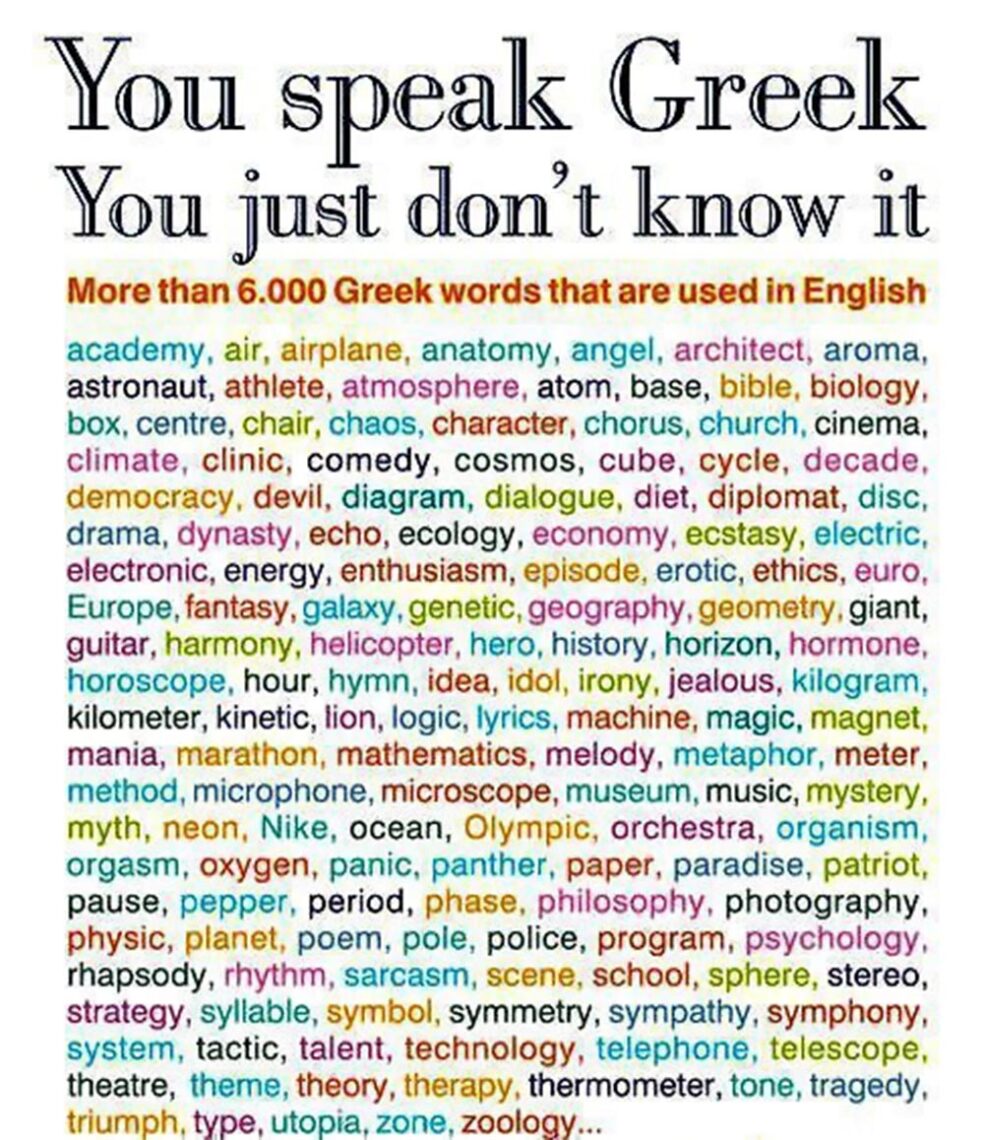

Some samples of English texts
(Bolded and underlined words are of Greek origin, all unchanged in time, and most importantly, easily understood by any uneducated Greek)
Sample 1
The cosmos, an extensive expanse, is the domain of astronomers who explore the phenomena of the celestial. Using telescopes, these scientists examine the orbits and magnitudes of various planets and stars. In the microcosm, biologists study organisms, analyzing their anatomy and physiology to understand abiogenesis, symbiosis, and metabolism within ecosystems.
In the realm of medicine, diagnosis and therapy are paramount. Physicians use clinical methods to identify symptoms and prescribe pharmacological remedies. Pathologists investigate the etiology of diseases, often employing microscopy to observe cellular pathology via biopsy. The synthesis of antibiotics has revolutionized the prognosis of bacterial infections.
Physics, another fundamental science, delves into the dynamics of energy and matter. The study of mechanics, optics, and acoustics has led to innovations in technology. Meanwhile, chemists explore the properties and reactions of chemical elements, discovering catalysts that accelerate synthesis processes.
In geology, the stratigraphy of the Earth is examined, revealing the chronology of tectonic activities. Seismologists monitor seismic waves to predict earthquakes, safeguarding populations from potential catastrophes. Paleontologists, on the other hand, unearth fossils, contributing to the chronology of life on Earth.
Psychology, a discipline examining the psyche(soul), focuses on cognition and behavior. Psychiatrists treat mental disorders, utilizing psychotherapy and psychopharmacology. The synergy of these sciences enhances our comprehension of the natural and human world, fostering a symbiotic relationship between knowledge and application.
Sample 2
Philosophy is a profound discipline that examines the fundamental nature of existence, knowledge, and ethics. Philosophers engage in dialectics, employing logic and reason to explore metaphysical questions about reality and ontology. The dialogues of Socrates, as documented by Plato, remain seminal texts in epistemology and ethics.
Metaphysics, a branch of philosophy, delves into the essence of being and the cosmos. It addresses questions of substance, causality, and the infinite. Epistemology investigates the nature and scope of knowledge and belief, differentiating between empirical and a priori knowledge.
Ethics, or moral philosophy, explores the concepts of virtue, justice, and the good life. Aristotle‘s Nicomachean Ethics offers a systematic examination of virtue ethics, proposing that eudaimonia, or human flourishing, is achieved through the cultivation of moral and intellectual virtues.
Aesthetics, another vital branch, analyzes the nature of beauty, art, and taste. Plato‘s theory of forms posits that aesthetic qualities are reflections of ideal forms. Aristotle‘s Poetics dissects the elements of tragedy and dramatic structure, influencing literary criticism for centuries.
The Socratic method, characterized by elenchus or refutation, is a form of dialectical inquiry that seeks to expose contradictions in an interlocutor’s arguments, promoting philosophical clarity and self-examination. Heraclitus and Parmenides contributed significantly to the ontology and cosmology debates, with their doctrines on change and permanence.
In the modern era, phenomenology, founded by Edmund Husserl, investigates the structures of consciousness and intentionality. Existentialism, with figures like Sartre and Heidegger, explores the human condition, freedom, and authenticity.
The study of philosophy remains essential for the comprehension of abstract concepts and the development of critical thinking. Through analysis, synthesis, and speculation, philosophers continue to contribute to the intellectual tradition and the quest for wisdom.
And an extreme example, understood by Academics
The philosopher and theorist utilized logic and ethics in their analysis of the cosmos. In their dialogue, they explored phenomena and ideas of metaphysics and epistemology. The dynamic synthesis of theories on psychology and aesthetics created a paradox in the paradigm of democracy and autonomy.
Their methodology included techniques of dialectics and rhetoric, aiming to achieve symmetry and harmony in their systematic hypothesis. The philosopher‘s critique of dogma emphasized the importance of rational analysis and empirical criteria. They debated the axioms of geometry and mathematics, focusing on the axiomatic principles and logic.
In ethics, the philosopher examined virtue, charisma, and hedonism, proposing a synthesis of principles for eudaimonia. The cosmopolitan ethos integrated aspects of democracy, autonomy, and sympathy. The philosopher‘s systematic approach combined hypothesis, theorem, and axiom, striving for clarity and coherence.
The scholar presented their thesis in a symposium, utilizing logic and rhetoric to convey the dynamic interplay of ideas and theories. They emphasized the synthesis of philosophical concepts, promoting dialogue and debate for the development of knowledge and wisdom.
Surprised? Don’t worry, you still have the rest of the words…but wait, 90% of the rest are Latin (directly or via French)! Αlso, you use the Latin alphabet, which, in turn, is a variation of the Ancient Greek Alphabet used in Euboea.
These Euboeans were the first colonists of Italy, and they brought their alphabet along, which was later adopted by Rome.
List of Greek words in English
Only an example of a few words of Greek origin is below, with their writing in the modern Greek language and their spelling with Latin characters. Practically unchanged since antiquity.
NOTE: The words on this list are not clickable; if you click on them simply nothing will happen!
- Academy = Ακαδημία (Akademia)
- Acrobat = Ακροβάτης (Akrovates)
- Air = Αέρας, Αήρ (Aeras)
- Airplane = Αεροπλάνο (Aeroplano)
- Anatomy = Ανατομία (Anatomia)
- Angel = Άγγελος (Aggelos)
- Abnormal = Ανώμαλος (Anomalos)
- Anti = Αντι (Anti)
- Archaeo = Αρχαιο (Archaeo)
- Architect = Αρχιτέκτων (Architekton)
- Aroma = Άρωμα (Aroma)
- Astronaut = Αστροναύτης (Astronaftis)
- Athlete = Αθλητής (Athleetees)
- Atlas = Άτλας (Atlas)
- Atmosphere = Ατμόσφαιρα (Atmosphera)
- Atom = Άτομο (Atomo)
- Auto = Αυτο (Afto)
- Bacterium = Βακτήριον (Vakterion)
- Base = Βάση (Vasee)
- Bible = Βίβλος (Veevlos)
- Bio = Βιο (Veeo)
- Biology = Βιολογία (Viologia)
- Box = Βοξ (Vox)
- Cemetery = Κοιμητήριο (Keemeeteerio)
- Centre = Κέντρο (Kentro)
- Centro = Κέντρο (Kentro)
- Chair = Καρέκλα (Karekla)
- Chaos = Χάος (Chaos)
- Character = Χαρακτήρ (Characteer)
- Chorus = Χορός (Choros)
- Chromo = Χρωμο (Chromo)
- Chronological = Χρονολογικό (Chronologiko)
- Cinema = Κινημα (Kinima)
- Climate = Κλιμα, Κλιματικό (Klimatiko)
- Clinic = Κλινική (Kliniki)
- Comedy = Κωμωδία (Komodeea)
- Cosmos = Κόσμος (Kosmos)
- Cube = Κύβος (Kyvos)
- Cycle = Κύκλος (Kyklos)
- Cyclo = Κυκλο (Kyklo)
- Decade = Δεκάδα (Decada)
- Demo = Δημο (Deemo)
- Democracy = Δημοκρατία (Deemokrateea)
- Devil = Διάβολος (Diavolos)
- Diagram = Διάγραμμα (Diagrama)
- Dialogue = Διάλογος (Dialogos)
- Diet = Δίαιτα (Dieta)
- Diplomat = Διπλωμάτης (Diplomates)
- Dinosaur = Δεινόσαυρος (Dinosavros)
- Disc = Δίσκος (Diskos)
- Drama = Δράμα (Drama)
- Dynasty = Δυναστεία (Dynasteia)
- Dys = Δυσ (Dys)
- Echo = Ηχώ (Echo)
- Ecology = Οικολογία (Ekologia)
- Economy = Οικονομία (Ekonomia)
- Ecstasy = Έκσταση (Ekstasi)
- Electric = Ηλεκτρικό (Elektriko)
- Electronic = Ηλεκτρονικό (Eelektroniko)
- Energy = Ενέργεια (Energeia)
- Enthusiasm = Ενθουσιασμός (Enthousiasmos)
- Episode = Επεισόδιο (Episodeio)
- Erotic = Ερωτικό (Erotiko)
- Ethics = ‘Ηθη (Ethe)
- Eu = Ευ (Ef)
- Euro = Ευρώ (Evro)
- Europe = Ευρώπη (Evropee)
- Fantasy = Φαντασία (Fantasia)
- Galaxy = Γαλαξίας (Galaxias)
- Genetic = Γενετικός (Genetikos)
- Geography = Γεωγραφία (Geographia)
- Geometry = Γεωμετρία (Geometria)
- Giant = Γίγαντας (Gigantas)
- Grammatical = Γραμματικό (Grammatiko)
- Graph = Γραφ (Graph)
- Guitar = Κιθάρα (Kithara)
- Harmony = Αρμονία (Armonia), the “h” is rejected in modern Greek.
- Helicopter = Ελικόπτερο (Elikoptero), the “h” is rejected in modern Greek.
- Hercules = Ηρακλής (Eraklees), the “h” is rejected in modern Greek.
- Hero = Ήρως (Iros), the “h” is rejected in modern Greek.
- Hippopotamus = Ιπποπόταμος (Ipopotamos), the “h” is rejected in modern Greek.
- History = Ιστορία (Eestoreea), the “h” is rejected in modern Greek.
- Horizon = Ορίζοντας (Orizontas), the “h” is rejected in modern Greek.
- Hormone = Ορμόνη (Ormonee), the “h” is rejected in modern Greek.
- Horoscope = Ωροσκόπιο (Oroskopio), the “h” is rejected in modern Greek.
- Hour = Ώρα (Ora), the “h” is rejected in modern Greek.
- Hydro = Υδρο (Ydro), the “h” is rejected in modern Greek.
- Hymn = Ύμνος (Ymnos), the “h” is rejected in modern Greek.
- Hypo = Υπο (Ypo), the “h” is rejected in modern Greek.
- Hyper = Υπερ (Yper), the “h” is rejected in modern Greek.
- Hypnotic = Υπνωτικό(Ypnotiko), the “h” is rejected in modern Greek.
- Idea = Ιδέα (Idea)
- Idiot = Ιδιώτης (Idiotes)
- Idol = Είδωλο (Idolo)
- Irony = Ειρωνία (Ironea)
- Jealous = Ζήλεια (Zelia)
- Kilogram = Χιλιόγραμμο (Chiliogrammo)
- Kilometer = Χιλιόμετρο (Chiliometro)
- Kinetic = Κινητικό (Kinetiko)
- Lion = Λέων (Leon)
- Logic = Λογικό (Logiko)
- Logo = Λογο (Logo)
- Lyrics = Λυρισμός (Lyrismos)
- Machine = Μηχανή (Mechane)
- Macro = Μακρο (Makro)
- Mega = Μεγα (Mega)
- Magic = Μαγικό (Magiko)
- Meta = Μετα (Meta)
- Metaphor = Μεταφορά (Metaphora)
- Metropolis = Μητρόπολις (Metropolis)
- Micro = Μικρο (Mikro)
- Mono = Μονο (Mono)
- Muse = Μούσα (Musa)
- Mystery = Μυστήριο (Mysterio)
- Myth = Μύθος (Mythos)
- Nectar = Νεκταρ (Nektar)
- Neon = Νέον (Neon)
- Nike = Νίκη (Nike)
- Nine = Εννέα (Enea)
- Ocean = Ωκεανός (Okeanos)
- Olympic = Ολυμπιακός (Olympiakos)
- Orchestra = Ορχήστρα (Orcheestra)
- Organism = Οργανισμός (Organismos)
- Orgasm = Οργασμός (Orgasmos)
- Oxyzen = Οχυγόνο (Oxygono)
- Paleo = Παλαιο (Paleo)
- Panic = Πανικός (Panikos)
- Panther = Πάνθηρας (Pantheras)
- Paper = Πάπυρος (Papeeros)
- Para = Παρα (Para)
- Paradise = Παράδεισος (Paradeisos)
- Patriot = Πατριώτης (Patriotes)
- Pause = Παύση (Pafsi)
- Pepper = Πιπέρι (Peperi)
- Period = Περίοδος (Periodos)
- Phase = Φάση (Phasee)
- Philo = Φιλο (Philo)
- Philosophy = Φιλοσοφία (Philosophia)
- Photo = Φωτο (Photo)
- Photography = Φωτογραφία (Photografia)
- Physic = Φυσική (Physike)
- Planet = Πλανήτης (Planeetes)
- Poem = Ποίημα (Peema)
- Pole = Πόλος (Polos)
- Poly = Πολυ (Poly)
- Pro = Προ (Pro)
- Program = Πρόγραμμα (Programma)
- Pseudo = Ψευδο (Psevdo)
- Psycho = Ψυχο (Psycho)
- Psychology = Ψυχολογία (Psychologia)
- Pyro = Πυρο (Pyro)
- Rhapsody = Ραψωδία (Rapsodia)
- Rhythm = Ρυθμός (Rythmos)
- Rhinoceros = Ρινόκερως (Rinokeros)
- Sarcasm = Σαρκασμός (Sarkasmos)
- Scene = Σκηνή (Skene)
- Schizophrenia = Σχιζοφρένεια (Schizophrenia)
- School = Σχολείο (Scholeeo)
- Sphere = Σφαίρα (Sphera)
- Star = Αστήρ (Asteer)
- Stereo = Στέρεο (Stereo)
- Strategy = Στρατηγική (Strategiki)
- Sycophant = Συκοφάντης (Sykophantes)
- Syllable = Συλλαβή (Syllavee)
- Symbol = Σύμβολο (Symvolo)
- Symmetry = Συμμετρία (Symmetria)
- Sympathy = Συμπάθεια (Sympatheia)
- Symphony = Συμφωνία (Symphonia)
- Syntax = Σύνταξη (Syntaksi)
- System = Σύστημα (Systeema)
- Tactic = Τακτική (Taktikee)
- Talent = Ταλέντο (Talento)
- Techno = Τεχνο (Techno)
- Technology = Τεχνολογία (Technologia)
- Telescope = Τηλεσκόπιο (Teleskopio)
- Telephone = Τηλέφωνο (Telephono)
- Television = Τηλεόραση (Teleorasi)
- Theatre = Θέατρο (Theatro)
- Theme = Θέμα (Thema)
- Theory = Θεωρία (Theoria)
- Therapy = Θεραπεία (Therapia)
- Thermo = Θερμο (Thermo)
- Thermometer = Θερμόμετρο (Thermometro)
- Third = Τρίτο (Treeto)
- Tone = Τόνος (Tonos)
- Tragedy = Τραγωδία (Tragodia)
- Triumph = Θρίαμβος (Thriamvos)
- Type = Τύπος (Typos)
- Utopia = Ουτοπία (Utopeea)
- Zone = Ζώνη (Zonee)
- Zoo = Ζωο (Zoo)
- Zoology = Ζωολογία (Zoologia)
Also, almost all words that start with “PH” are of Greek origin!
For my fellow Musicians
Of course, you all know that the word ‘Music‘ is Greek, don’t tell me that you don’t!
And if you play Guitar(another Greek word) you are familiar with tones, semitones, musical scales, etc, as well as with Heptatonic and pentatonic scales made in antiquity, such as Ionian, Dorian, Aeolian, Phrygian, Lydian, Mixolydian, Hypolydian, Hypodorian or Locrian…these terms have Greek origins, reflecting the influence of ancient Greek musical theory.
See for yourself: https://en.wikipedia.org/wiki/Mode_(music)
We must stop here, these are already very good samples, and is impossible to write down all the 150,000 Greek words used in English! But if you click this Wiktionary link, you can discover thousands more Greek words in English than you ever imagined.
Language tips
So, if you are one of those who say, “It’s all Greek to me,” it’s time to reconsider it; it will help if you follow a couple of simple tips.
Most importantly, the Latin sound of “C” is “K” in Greek. For Greeks, the sound of “C” is always written and pronounced as “S”.
(Parenthesis: During the Byzantine era, the letter C was used in Greek to produce the sound of S)
Keep in mind that the “TH” sound is written with the letter “Θ” in Greek.
In ancient Greek, the letter ‘B’ originally sounded like what ‘B’ sounds like in English today, but in modern Greek, it sounds like ‘V’. The sound of ‘B is written with two distinct letters “MΠ” (M+P), and is pronounced like the Latin ‘B’.
All ancient Greek words that had an aspiration before the first vowel were written in Latin with an ‘H’ letter instead of the aspiration, for example, ‘Ιστορία = History’.
This aspirate remained in English as the letter ‘H’, but is abolished in modern Greek, and the sound of “H” is not pronounced.
Anywhere you see an “Ω” or “Ο”, both pronounced as “O”. ‘Ω’ is called Omega (big, long O) and was pronounced as double O; both exist but sound the same as ‘O.
There are more minor differences, but slowly you will find out that you start to make sense.
Differences in the alphabet are minor. The Latin alphabet, after all, is the natural evolution of the Greek Euboean alphabet, which in turn was a local variation of the Greek alphabet.
Before 800 BCE, the Greeks borrowed the Phoenician alphabet to replace their Linear B script. It’s worth noting that they changed many letters to fit their pronunciation and added vowels, as the Phoenician alphabet did not have any vowels.
So, while the Phoenician alphabet may be considered the common ancestor of all European alphabets today, without the modifications by the Greeks, it would not fit at all.
Finally, you will see that saying “It’s all Greek to me” is a nonsensical expression. Therefore, it’s good to abandon this expression as it can be seen as a sign of ignorance; change it instead by saying: ‘It’s all Chinese to me’.
Learn 100 Greek words in 10 minutes!Many Terms Have Greek Roots
Now that you’ve seen how many Greek words you already know, it’s no surprise that English speakers use many words of Greek origin every day—even without realizing it!
📄 Download the Full PDF
If you enjoyed this guide, scan the QR code below to instantly download the “List of Greek Words in English – Free PDF”: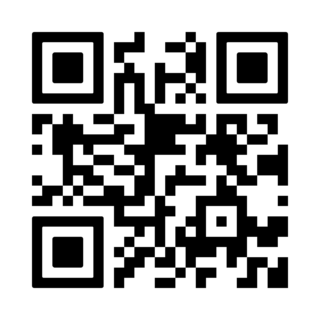

Or click this link to download directly:
📄 Download PDF


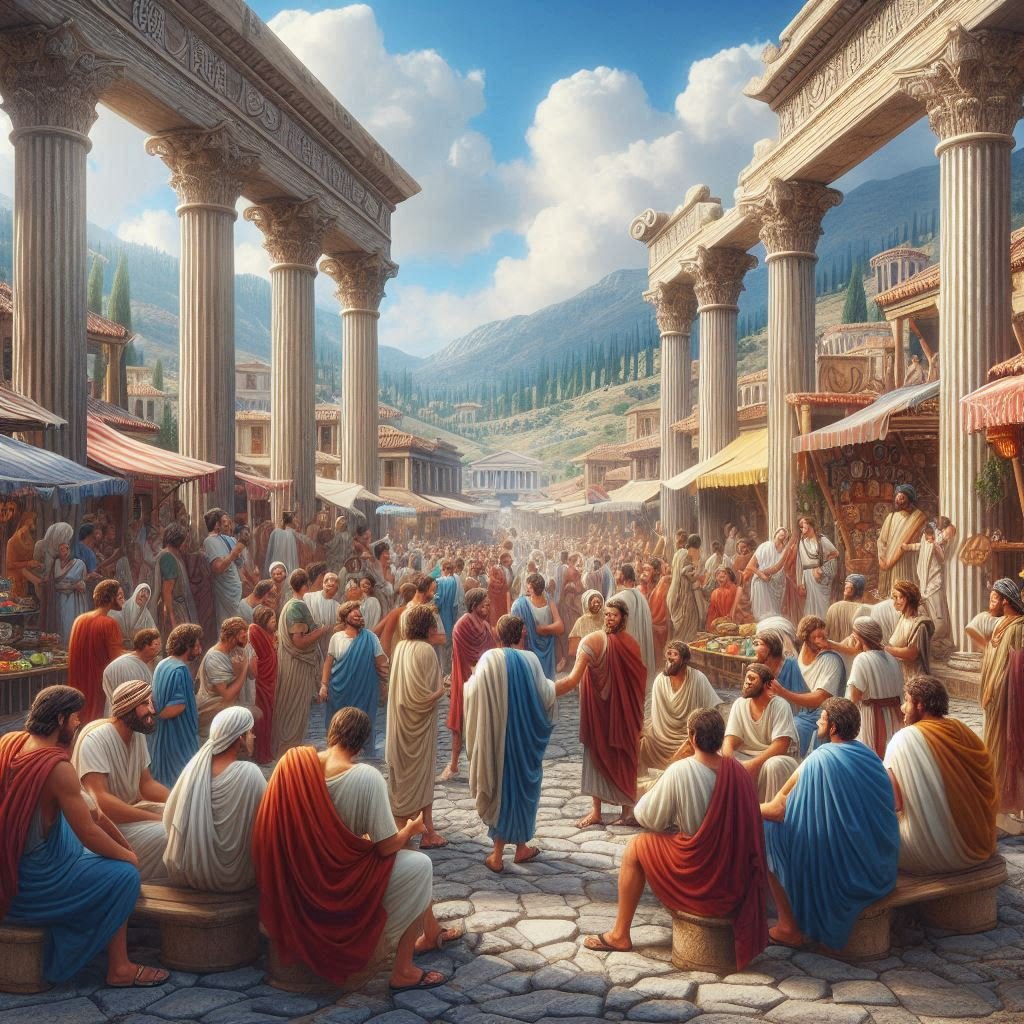


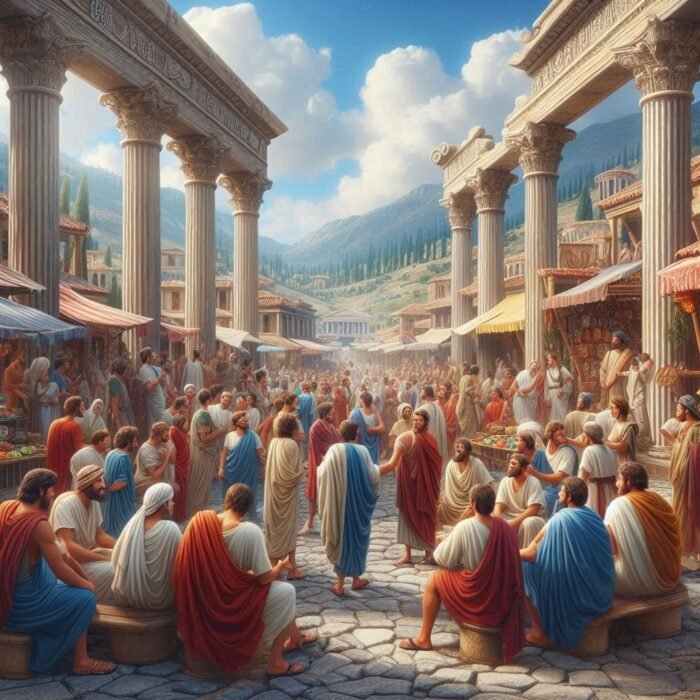



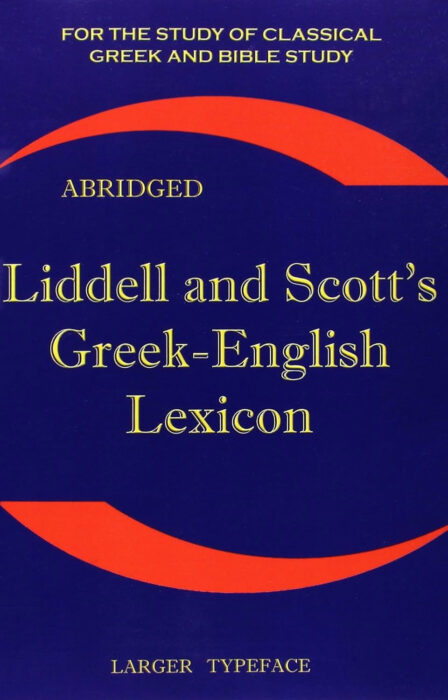
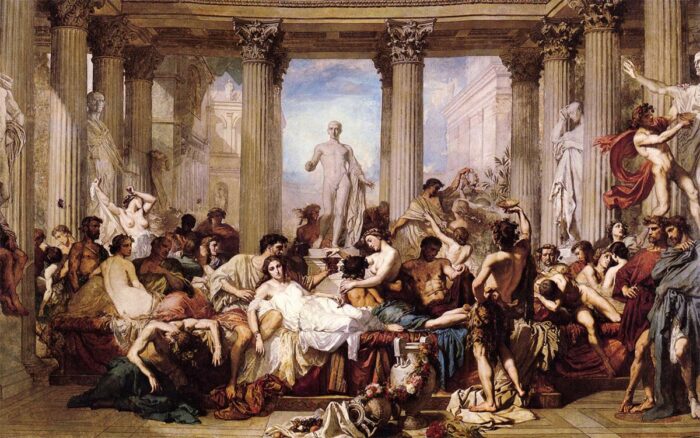




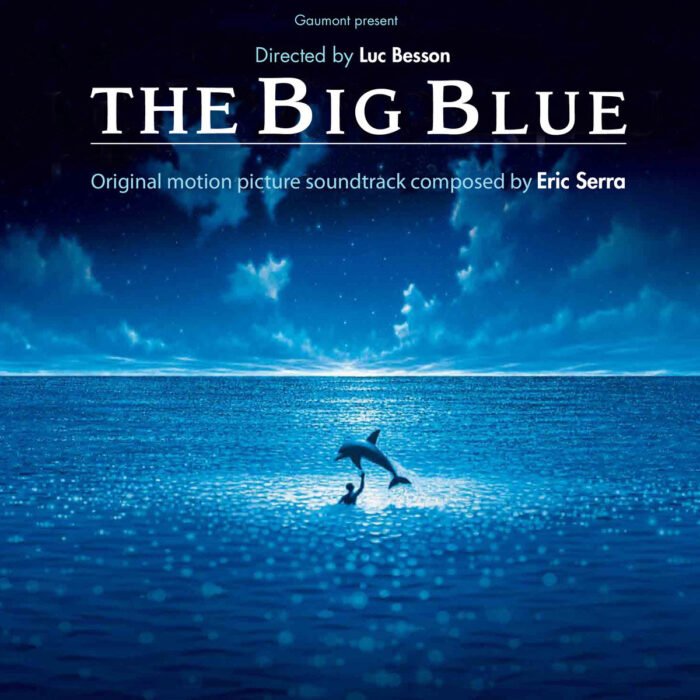




Comments